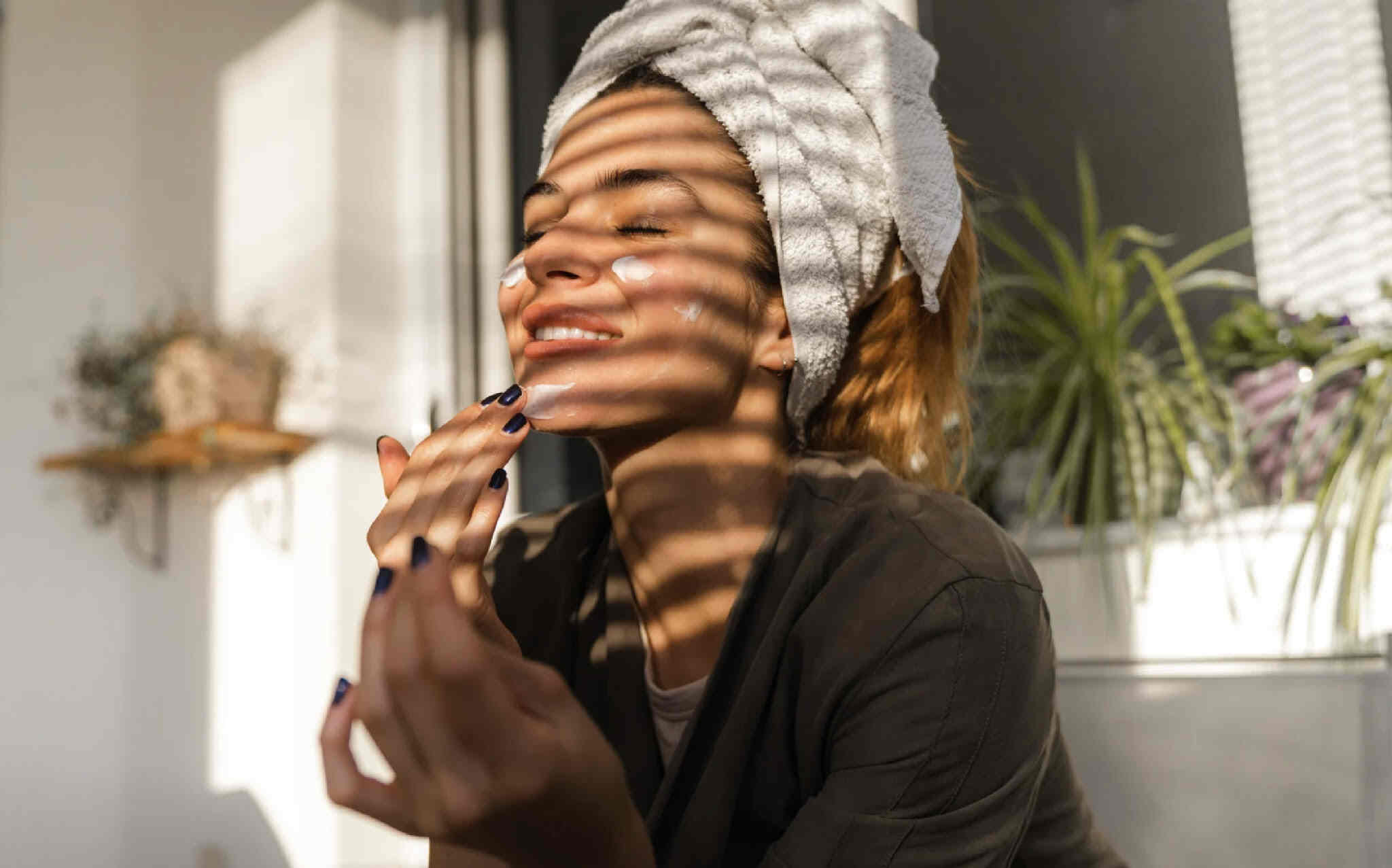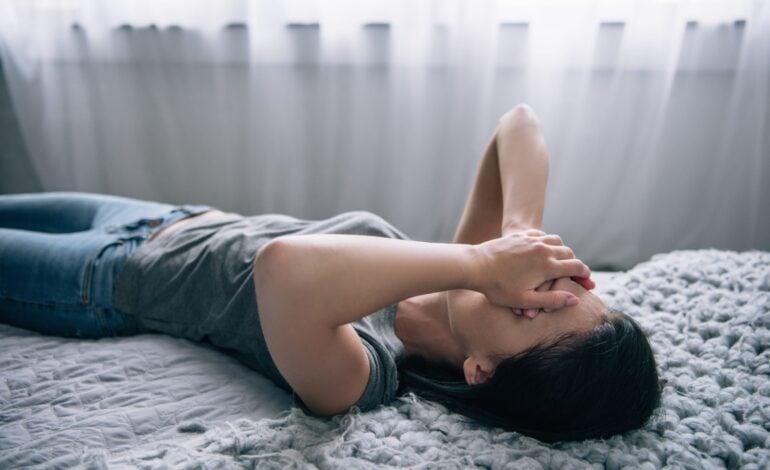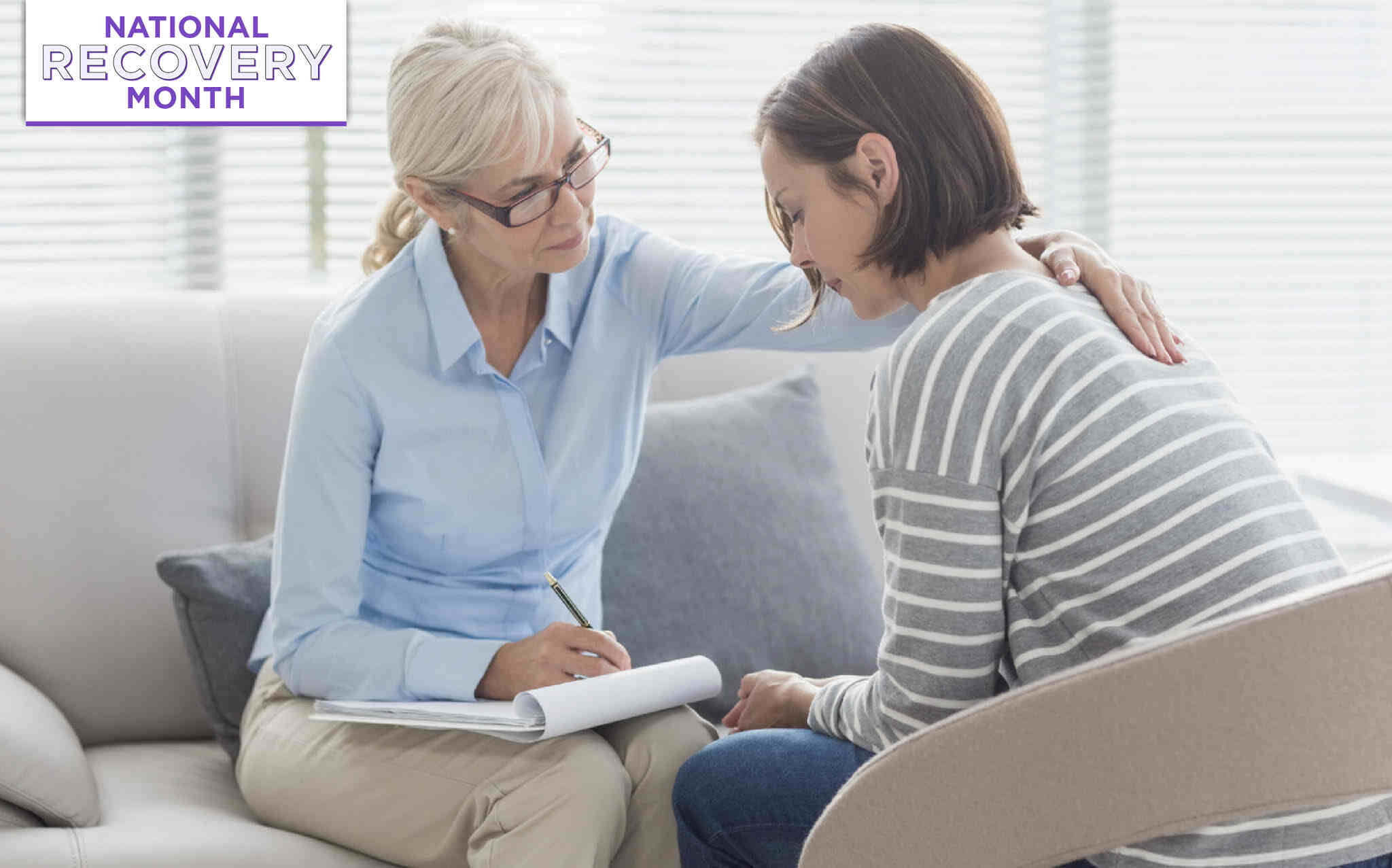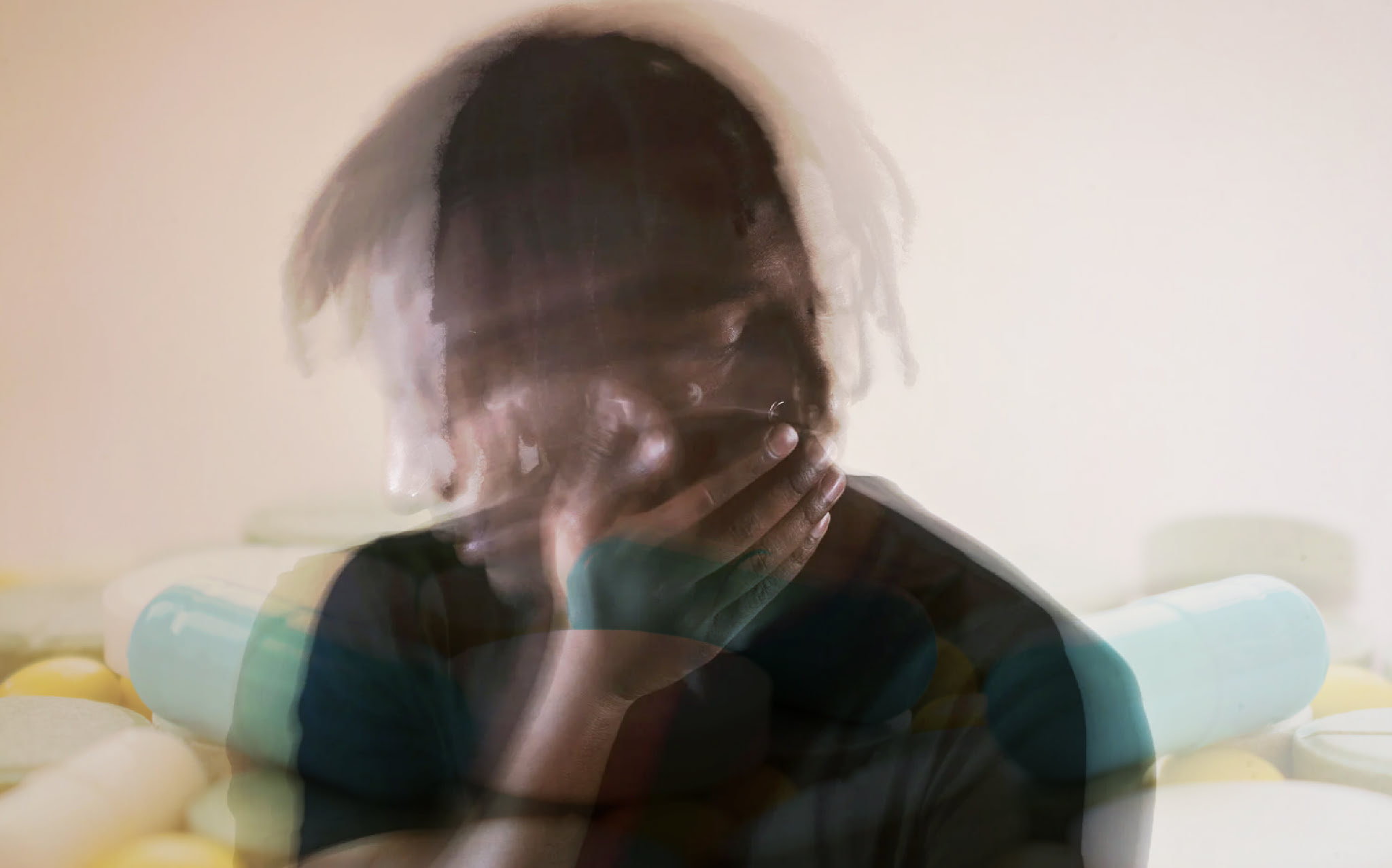Therapy will always be the gold standard for treating mental health conditions such as depression and anxiety; however, it comes at a financial cost. Therapy sessions can run $100-$200 on average for a one-hour session, and there is a chance your insurance will not cover this. Or what if you don’t have insurance? Even with sliding scale payments and online therapy platforms deemed “more affordable,” therapy can be out of reach for many individuals due to cost. You should never feel ashamed or blamed because you cannot afford therapy. We live in a society with a broken healthcare system and are trying to do our best to keep our heads above water.
Free Mental Health Apps
Many mental health apps help you track your mood and emotions so you can objectively look at how you are feeling. Some of these apps will offer journal prompts, guided meditation, and positive affirmations and give you tools to teach you to manage your stress and anxiety. Although all mental health apps are not created equal or considered a substitute for therapy, some can help you work through your symptoms. The key to finding a mental health app that works best for you. Try downloading a few free mental health apps and spending time within each app to see which ones are potential good fits and which ones you feel are not your style. Once you find a couple of mental health apps you like, use them regularly. Mental health apps can also offer you educational tools and resources.
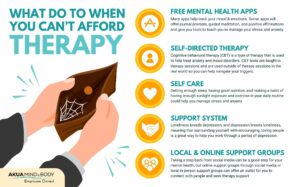
Self-Directed Therapy
Cognitive behavioral therapy (CBT) is a type of therapy that is used to help treat anxiety and mood disorders. CBT tools are generally taught in therapy sessions and are used outside of therapy sessions in the real world so you can help navigate your triggers. Learning CBT therapy strategies through workbooks, journal prompts, mental health apps, or self-guided courses is possible, so you can use these tools in your everyday life.
“If you’ve wanted to try CBT for anxiety or depression but aren’t able to see a CBT therapist, you may not need to. Many studies have found that self-directed CBT can be very effective. Two reviews that each included over 30 studies (see references below) found that self-help treatment significantly reduced both anxiety and depression, especially when the treatments used CBT techniques. The average amount of benefit was in the “moderate” range, meaning people didn’t feel 100% better but were noticeably less anxious and depressed.”
Recommendations for self-directed therapy resources:
- Association for Behavioral and Cognitive Therapies’ list of books.
- National Alliance on Mental Illness for its mental health education directory.
Self Care: Sleep, nutrition, sunlight and exercise
Getting enough uninterrupted sleep and having a healthy bedtime and morning routine are crucial to managing stress and anxiety. If you are sleep-deprived, you are more prone to feeling stressed and anxious throughout the day. The same rule applies to your daily nutrition, exercise routine, and daily dosage of sunlight. Eating whole balanced meals to nourish your body is not only good for your physical health, but your brain helps as well. The gut-brain axis is the communication between your digestive tract and your brain, and studies have shown that what you put into your body can directly affect brain and gut inflammation, which can affect your cognitive patterns and mood. Moving your body for 20 minutes a day is a way to boost endorphins and dopamine to elevate your mood; moving your body in nature is even better. Even soaking up the sun for a few minutes while drinking coffee or walking your dog can elevate your mood.
Stay close to your support system
Loneliness breeds depression, and depression breeds loneliness, meaning that surrounding yourself with encouraging, loving people is a great way to help you work through a period of depression. It is important to remember that you can still feel lonely in a room full of people, so it is important to choose wisely who you surround yourself with. Group therapy or support groups are typically led by a mental health professional or group leader and can be low-cost or free. Whether it be friends, family, or strangers, sharing your feelings and experiences is essential.
Engage in local and online support groups
Taking a step back from social media can be a good step for your mental health, but online support groups through social media or local in-person support groups can offer an outlet for you to connect with people and seek therapy support. Nonprofits, volunteers, and local organizations offer many free support groups for grief, trauma, and addiction recovery.
For example, Mental Health America, a nonprofit organization that promotes mental health and wellness, offers a wide list of support groups that help people living with:
- substance use disorder
- mental health disorders
- domestic violence
- physical disabilities
The National Alliance of Mental Illness (NAMI) offers free peer-led support groups focused on mental illness, in addition to support groups for parents and family members.

